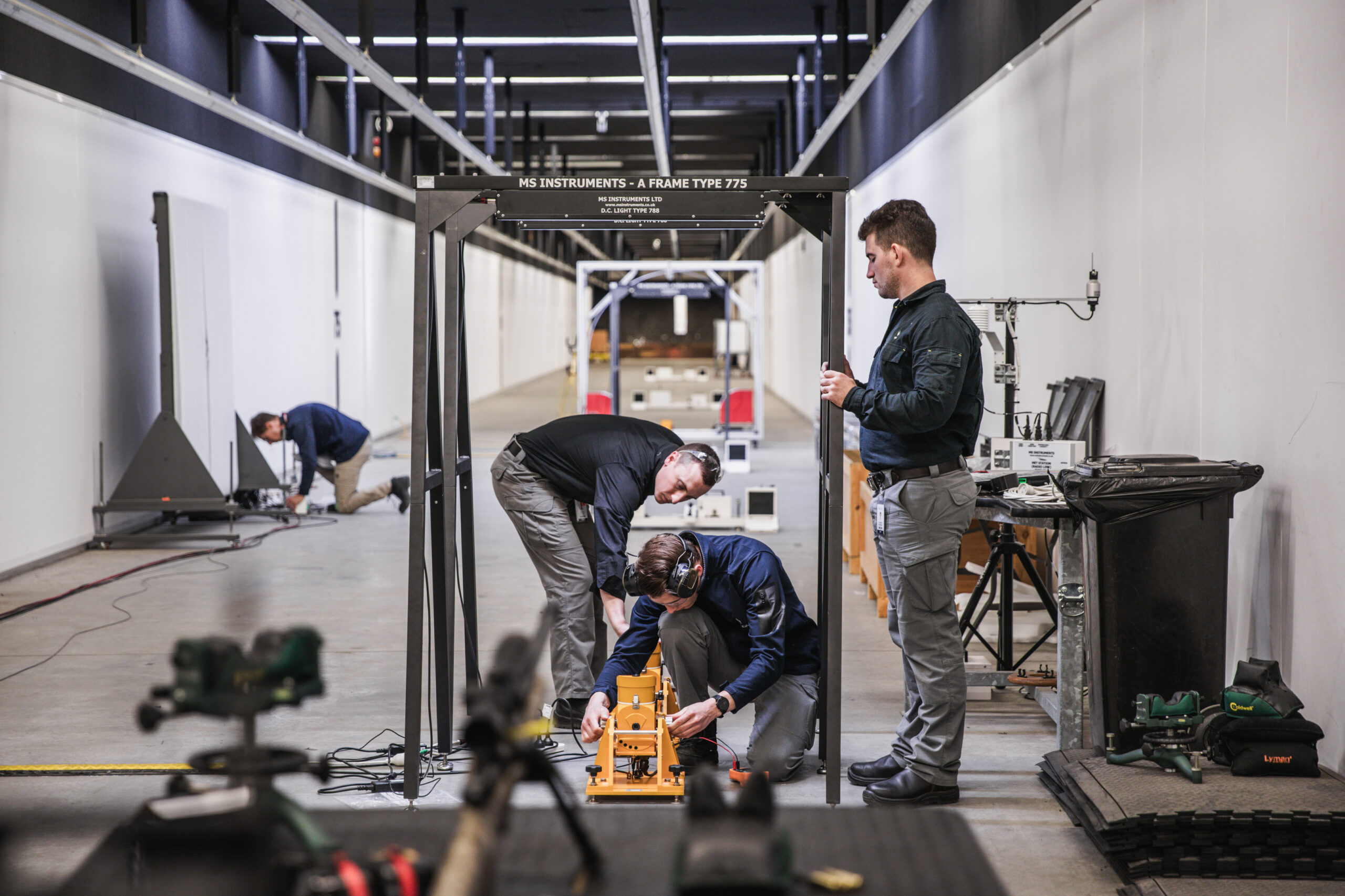MIL-DTL-32334 Ceramic Armor Tiles Ballistic Testing
The MIL-DTL-32334 standard is a critical specification for ceramic armor tiles used in military applications. This document sets stringent requirements for the design, manufacturing, and testing of these materials to ensure they meet ballistic performance specifications required by the U.S. Department of Defense (DoD). The test procedures outlined are designed to evaluate the resilience, resistance, and overall effectiveness of ceramic armor against various types of projectiles under controlled conditions.
The testing process involves a series of standardized trials that simulate real-world combat scenarios. These trials aim to assess the armor's ability to withstand high-velocity impacts from different calibers of ammunition. The tests are conducted using specialized equipment, which can include ballistic test stands and impact chambers designed for controlled fire environments.
One of the key aspects of this testing is the preparation of the specimens. Ceramics used in MIL-DTL-32334 armor tiles must undergo rigorous quality control checks to ensure uniformity and consistency across batches. This includes visual inspections, dimensional checks, and density measurements. Once prepared, the specimens are subjected to impact tests using projectiles representative of those encountered in military operations.
The testing apparatus used for MIL-DTL-32334 ceramic armor tiles is highly sophisticated, designed to replicate the stresses and strains experienced by these materials in actual service conditions. The equipment can simulate different angles of attack and varying speeds of incoming projectiles, allowing for a comprehensive assessment of the armor's performance.
The results of these tests are meticulously recorded and analyzed to determine compliance with MIL-DTL-32334 standards. Reports generated from this testing provide detailed insights into the armor’s ballistic resistance, including data on penetration depth, energy absorption, and structural integrity post-failure. These reports are essential for quality assurance teams, compliance officers, and R&D engineers responsible for ensuring that ceramic armor meets stringent military requirements.
Compliance with MIL-DTL-32334 is crucial not only for meeting regulatory standards but also for maintaining the trust of the armed forces who rely on this technology. The testing process ensures that each batch of ceramic armor tiles undergoes rigorous evaluation to maintain high levels of reliability and safety.
The impact of adhering to MIL-DTL-32334 is significant, contributing to the development of safer, more effective military equipment. By ensuring that every component meets these stringent specifications, the testing process enhances overall mission readiness and operational effectiveness. This is particularly important in scenarios where the integrity of the armor could mean the difference between life and death.
The following table highlights some of the key industry applications for MIL-DTL-32334 ceramic armor tiles:
| Application | Description |
|---|---|
| Military Vehicles | Ceramic armor tiles are used in the frontal and side panels of vehicles to provide enhanced protection against ballistic threats. |
| Body Armor | These tiles can be incorporated into modular body armor systems, providing soldiers with flexible protection options. |
| Fixed Installations | Ceramic armor is used in the construction of fixed installations to protect against improvised explosive devices (IEDs). |
The next table provides a summary of the key acceptance criteria for MIL-DTL-32334 ceramic armor tiles:
| Criteria | Description |
|---|---|
| Material Density | The material must have a minimum specified density to ensure structural integrity. |
| Bullet Penetration Depth | The depth at which the bullet penetrates the armor is measured and compared against acceptable limits. |
| Energy Absorption | The amount of energy absorbed by the armor during impact is calculated to ensure it meets specified thresholds. |
In conclusion, MIL-DTL-32334 ceramic armor tiles are a vital component in modern military vehicles and body armor systems. The rigorous testing process ensures that these materials meet the highest standards of performance and reliability, contributing to enhanced safety and effectiveness on the battlefield.





